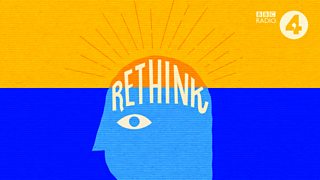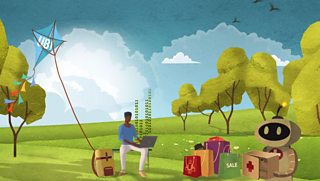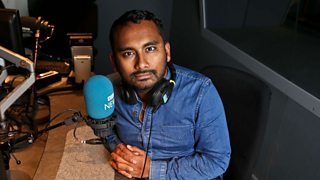How five famous figures are rethinking life after lockdown
It can be all too easy to focus on the things the COVID-19 pandemic has taken away from us, but something the period of lockdown has given us is time to both think and rethink. It has given us time to re-evaluate the way we lived before, and consider the changes we would like to see in a post-pandemic world.
In Rethink, a new series of audio essays across ±«Óãtv Radio 4, World Service and 5 Live, great minds from around the globe are sharing their thoughts on the new epoch we could forge when we emerge from lockdown. From the environment to education, identity to the internet, here are five ways we might rethink life after lockdown.
-
![]()
Rethink: Podcast
Download the Rethink podcast.
It’s time to have an environmental revolution – Jarvis Cocker
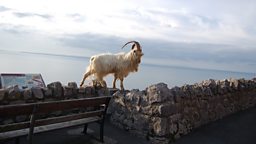
Musician Jarvis Cocker is all too aware of the pressing need to preserve the environment before it’s too late, though his suggestion for effecting positive change is not through governmental policy, but awe.
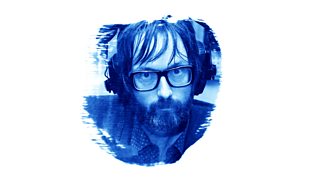
Jarvis, like many of us, has been particularly struck by the way in which the cessation of everyday human activity has created a huge resurgence of wildlife, from fallow deer in East London, to goats frolicking in the streets of Llandudno. It is this quiet environment, explains Jarvis, that has enabled us to appreciate these natural wonders.
“I guess we noticed because we could notice” says Jarvis, “The background noise of road traffic and planes flying overhead was absent, but also because, after years of dire warnings on the effects of climate change, we wanted to notice.”
Seeing these phenomena with our own eyes and sharing them widely over social media has confirmed for many quite how profound the impact of our behaviour is on the natural world.
Jarvis suggests it’s time to have an environmental revolution, whereby we give the planet ‘fallow years’, to coin an agricultural term, to let the earth heal. “Set folks to work on environmental projects” says Jarvis, referring to the rewilding of former industrial sites. “It seems that there will be a fair amount of surplus workforce sloshing around in the wake of this crisis. Use it. People need to work: give them some work they can be proud of. Give them some work we can all be proud of.”
Exams aren’t everything. Students need to learn skills to survive in the wild that is adulthood – Caleb Femi
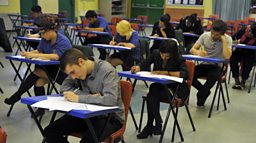
In spring 2020, thousands of pupils across the nation were told that their exams had been cancelled. In another life, this could have been a cause for celebration, but these exams marked the culmination of a lifetime’s worth of education. These pupils’ results could define the opportunities available to them in future, and the cancellation of exams meant that their grades would now be predicted based on their performance in mock exams many months before.
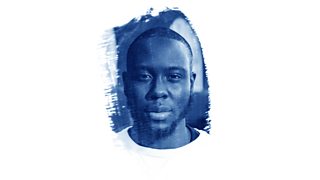
Statistically, black pupils have their grades under-predicted, but generally exceed what is expected of them. As such, many pupils will be stuck with grades that don’t represent their talent. When plotting the world after COVID-19, poet Caleb Femi would begin with rethinking education.
Caleb feels that for too long, pupils have been led to believe that good grades are enough to earn you a place in a world defined by prosperity and certainty. Yet the current COVID-19 crisis has proved that nothing in life is certain. He wonders whether students will feel underequipped to “survive in the wild that is adulthood”.
Caleb says that, going forward, it’s up to pupils to find ways of putting themselves in the driving seat of their own learning. He believes young people need to be equipped with problem solving skills, creativity, innovation, the autonomy to envisage a new future, and the mental dexterity to create a better society if they are to thrive in the world. In a post-lockdown life, he wants schools to encourage pupils to exercise their imaginations and think creatively, because only knowing how to excel in exams is no use if there are no longer any exams to sit.
Don’t say you can’t see race – Emma Dabiri
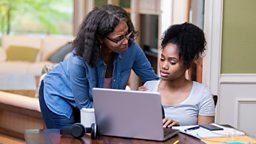
“Don’t say you can’t see race” says author Emma Dabiri, “because if that is the case you cannot see, and have certainly not acknowledged, the fact that whether you were born black or white in the UK will have a significant impact on both your life experiences and your opportunities.”

Emma explains that race as a concept was invented in the 1600s to dehumanise black people and to create divisions between African slaves who were building ties with indentured Irish servants. And so, people were identified by their differences, rather than humanity’s similarities.
The current lockdown has given many of us more time to scroll through social media. Recently, on these social platforms, thousands have been spectators to acts of violence against black people and the ensuing online debates.
Emma explains that the very nature of social media “rewards outrage by amassing followers, likes and retweets from both the like-minded and the cowed.” She notes that commentators “will not be compensated in the same way for offering more nuanced, considered takes.”
We can only fully experience our own humanity by recognising the humanity of others.Emma Dabiri
In order to reinvent identity politics, Emma says that the focus must be on coalition, “the direction we are going in has not liberated us. To further continue in that way rather than seek new directions is an indulgence we can ill afford." Going forward, Emma says that we can only fully experience our own humanity by recognising the humanity of others. We must find common needs and identify ways in which we can do things for one another if we are to move beyond identity politics to build real, meaningful connections.
Access to the internet must be recognised as an essential utility and human right – Tim Berners Lee
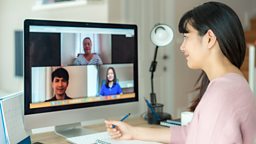
How different would our experiences of the pandemic have been, had we not had access to the internet?
Universal access to the internet is crucial to combatting inequality.Tim Berners Lee
The ability to work from home, order food online, enjoy video calls with our nearest and dearest, to learn and continue enjoying culture are all things we have taken for granted. Or at least, some of us have.
If you are reading this, you are one of the lucky ones, as almost half the world remains unable to access the internet. Tim Berners Lee, inventor of the World Wide Web, calls this the ‘digital divide’. Going forward, Tim stresses that universal access to the internet is crucial to combatting inequality, and that it must be recognised as an essential utility and human right.
In future, however, the function of the web should be rethought; it should improve lives and enrich societies. To fulfil this function, Tim suggests that what we read online must be trustworthy, that the web should facilitate constructive debate, and that it should provide a platform for underrepresented groups to voice their realities without being toned down by those seeking to sow division or spread hate.
Tim says “after great upheaval, there is an opportunity to reimagine and rebuild. The world after COVID should be one such time. For me, it’s about keeping half your mind on the crisis at hand, but the other half consciously on the point where we may suddenly realise we are post-COVID. We need to have the plans for that moment, and the momentum and energy already lined up.”
We should all focus on what we can control – Rebecca Adlington
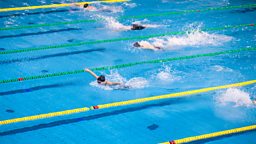
For former Olympic swimmer Rebecca Adlington, lockdown has provided a positive opportunity to slow down and spend time with her young daughter. But had she still been competing as an elite athlete, this space for slowing down could have felt very different.
We can only focus on what we can control and how we are using this time, how we’ll have been able to develop and adapt moving forward.Rebecca Adlington
As athletes, she explains “you have to be selfish, and you have to focus on performance twenty four-seven.” For sportspeople, even days off are spent considering how they will impact on performance. Now, without the pressure of imminent competitions, there is space for reflection. Athletes have finally been given the opportunity to remember why they pursued their chosen sport in the first place.
In future, she wants them to find space to enjoy the process and journey, rather than focusing entirely on the next competition. The postponing of the Olympics, though a huge disappointment for those who have worked so hard, could in fact be seen as an opportunity: the gift of time. Time to physically grow, to recover, to become even more driven.
The pandemic has reminded Rebecca that, going forward, we should all focus on what we can control. “We can’t control when venues will open, when we’ll be able to travel again … or even what the future of sport will look like. We can only focus on what we can control and how we are using this time, how we’ll have been able to develop and adapt moving forward. I don’t think this is just about athletes. It’s a lesson for everyone.”
Rethink on Radio 4
-
![]()
±«Óãtv Rethink
How the world should change after the coronavirus pandemic.
-
![]()
Is the coronavirus crisis a chance to reset the world?
The ±«Óãtv's Amol Rajan looks back through history at times when crises have led to profound changes in society.
-
![]()
Rethink: The Edge of Change
Amol Rajan and guests discuss how the coronavirus pandemic has created an opportunity to reshape our world.
-
![]()
Why we need to Rethink just about everything
Influential thinkers suggest post-Covid-19 opportunities to effect lasting change.
